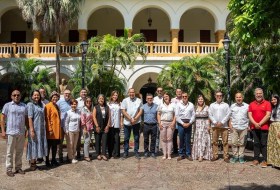News
The two bicentennial universities of Colombia, present in the 2025 Global SDG Ranking
Approaching their 200th anniversary, Universidad del Cauca and Universidad de Cartagena, two public sister institutions with a shared history of academic leadership and social commitment, were ranked in the 2025 edition of the Times Higher Education (THE) Impact Rankings on the Sustainable Development Goals (SDGs); a joint achievement that reflects both universities’ commitment to sustainable development.
The Times Higher Education (THE) Impact Rankings is an international assessment that measures the impact of universities in fulfilling the 17 Sustainable Development Goals (SDGs) proposed by the United Nations (UN). The SDGs are a universal call to action to end poverty, protect the planet, and improve the lives and prospects of people worldwide. This specific ranking evaluates areas such as research, teaching, community engagement, institutional management, and sustainability policies, and aims to recognize higher education institutions that actively contribute to building a fairer, more equitable, and sustainable world.
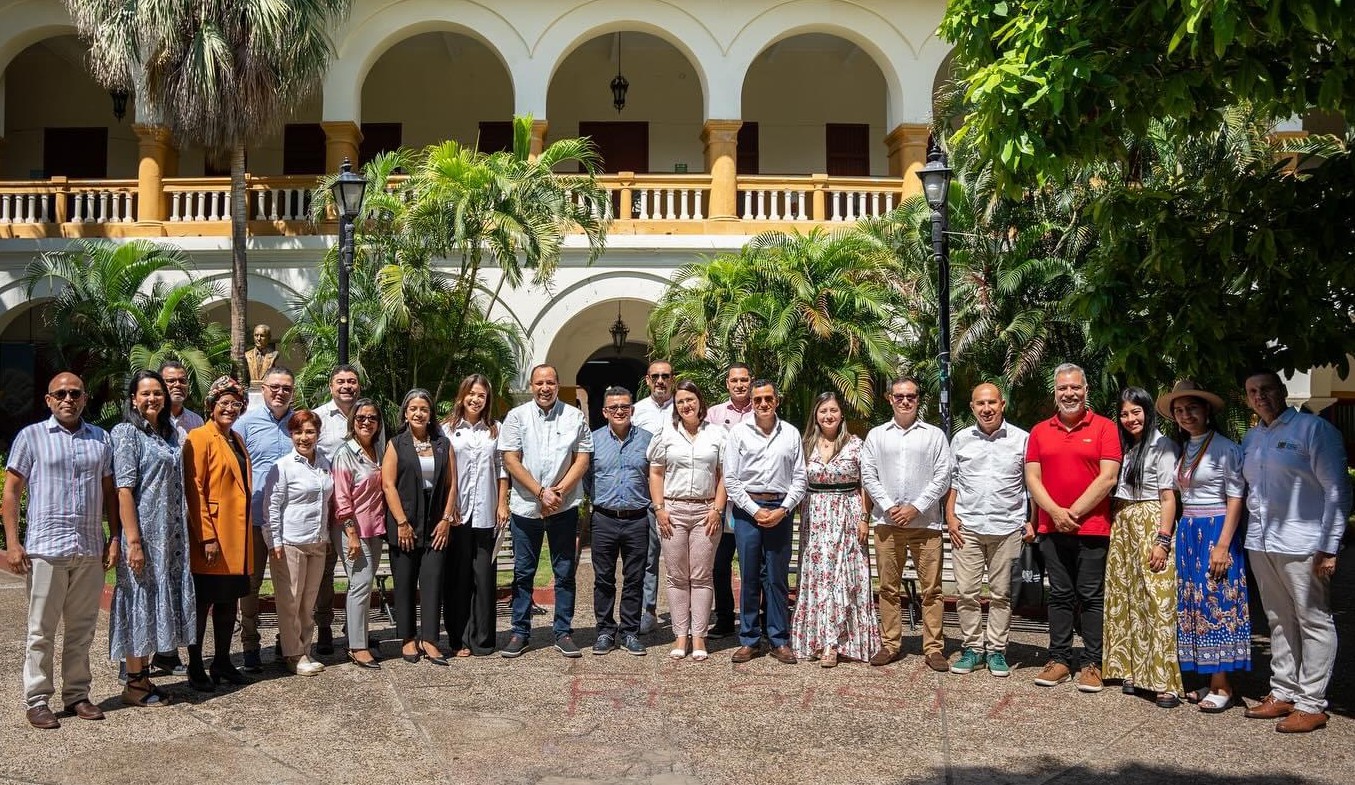
Provided photo
With more than 2,000 universities worldwide evaluated, based on indicators that measure their contribution to global sustainability across dimensions such as research, teaching, social outreach, institutional management, and well-being policies, the 2025 edition includes only 17 Colombian universities. According to the results published by Times Higher Education, Universidad del Cauca and Universidad de Cartagena appear in the 1001–1500 global band. Both institutions, known for their territorial engagement, intercultural focus, and commitment to social transformation through public education, continue to establish themselves, through this international assessment, as benchmarks of academic excellence, inclusion, social justice, and sustainability, both nationally and globally.
For Universidad del Cauca, participating for the first time and being ranked in the Times Higher Education Impact Rankings on the SDGs is an unprecedented milestone that fills its academic community with pride. It is a recognition that reflects its commitment to a fairer, more equitable, and more sustainable future, as well as its intention to positively impact both university life and territorial dynamics. Regarding this, Andrés Felipe Rivera Fierro, Head of the Office of Planning and Institutional Development at Unicauca, stated: “This recognition reaffirms our goal to positively transform the lives of our university community by prioritizing resources toward development sectors that need them most. This roadmap guides our university planning in the short, medium, and long term.”
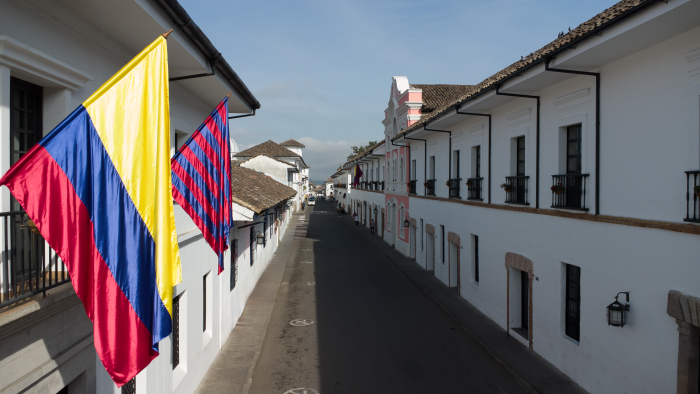
Provided photo
The achievement becomes even more significant considering that, despite it being the first time Universidad del Cauca participated in this international ranking, it successfully qualified, meeting the strict criteria of transparency, data verification, and technical standards established by Times Higher Education. This result was possible thanks to a coordinated exercise in institutional diagnosis, systematization, and evaluation, involving various departments and work teams. As such, Unicauca is currently working on developing its own set of SDG-aligned indicators and consolidating the UniCauca en Cifras system; a key tool for monitoring, decision-making, and public accountability.
For Universidad de Cartagena, this international recognition aligns perfectly with its 2022–2026 Strategic Development Plan “Towards a Transformative and Humanistic University”, where the axis of research, innovation, and knowledge management sets clear goals in terms of scientific productivity, academic cooperation, and global positioning. In this context, the ranking represents external validation of its institutional strategy. “This recognition confirms that the investments in lab infrastructure, academic mobility, and international partnerships outlined in the plan are generating measurable impacts. It also provides a benchmark for the remaining phases, including the consolidation of research networks and the expansion of dual-degree programs. In short, the ranking is not an end but an external indicator that Universidad de Cartagena’s path toward its Bicentennial is progressing firmly and backed by verifiable results,” said Harol Gómez Estrada, Vice-Rector for Research at Universidad de Cartagena.
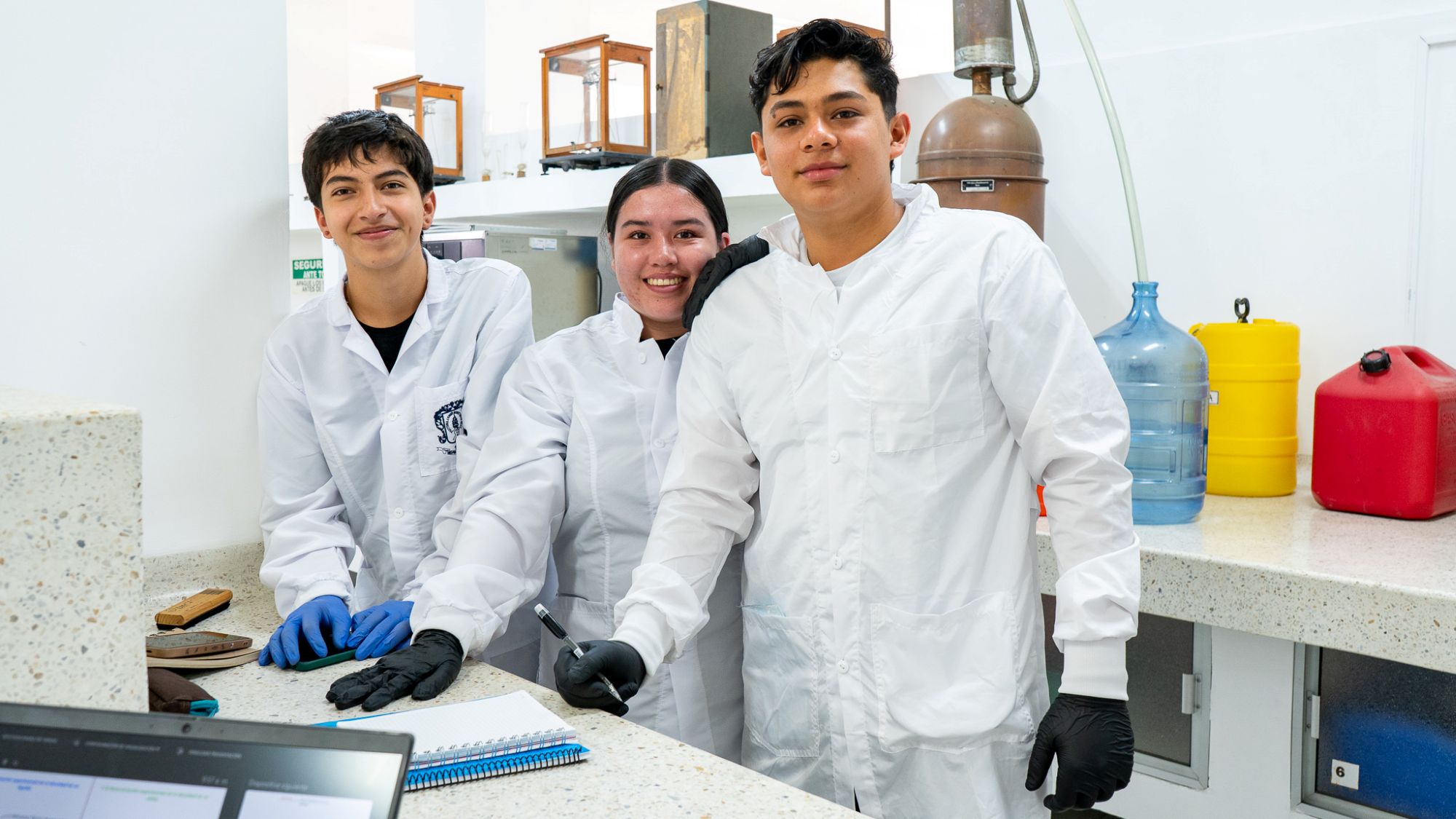
Provided photo
Both universities agree that rankings like this should not be considered a goal in themselves, but rather as tools that help strengthen planning, highlight best practices, and reaffirm territorial presence. While for Universidad del Cauca this was its first year of participation and it successfully qualified, for Universidad de Cartagena this new inclusion consolidates an upward institutional trajectory committed to the Sustainable Development Goals. These are two paths that now converge into a shared purpose: building, from public universities, a sustainable and transformative future toward the Bicentennial.
“Our inclusion in the SDG Global Ranking for the first time validates a collective and committed effort by our entire university community. This recognition makes visible the work we carry out from our regions with an intercultural approach, equity, and social responsibility. Being ranked among more than 2,000 universities worldwide, after being evaluated on health, education, clean energy, equity, and partnerships, demonstrates that our public, excellent, and solidarity-based university has real impact. On the road to our bicentennial, this is a firm step forward that fills us with pride and further strengthens our commitment,” highlighted Deibar René Hurtado Herrera, Rector of Unicauca.
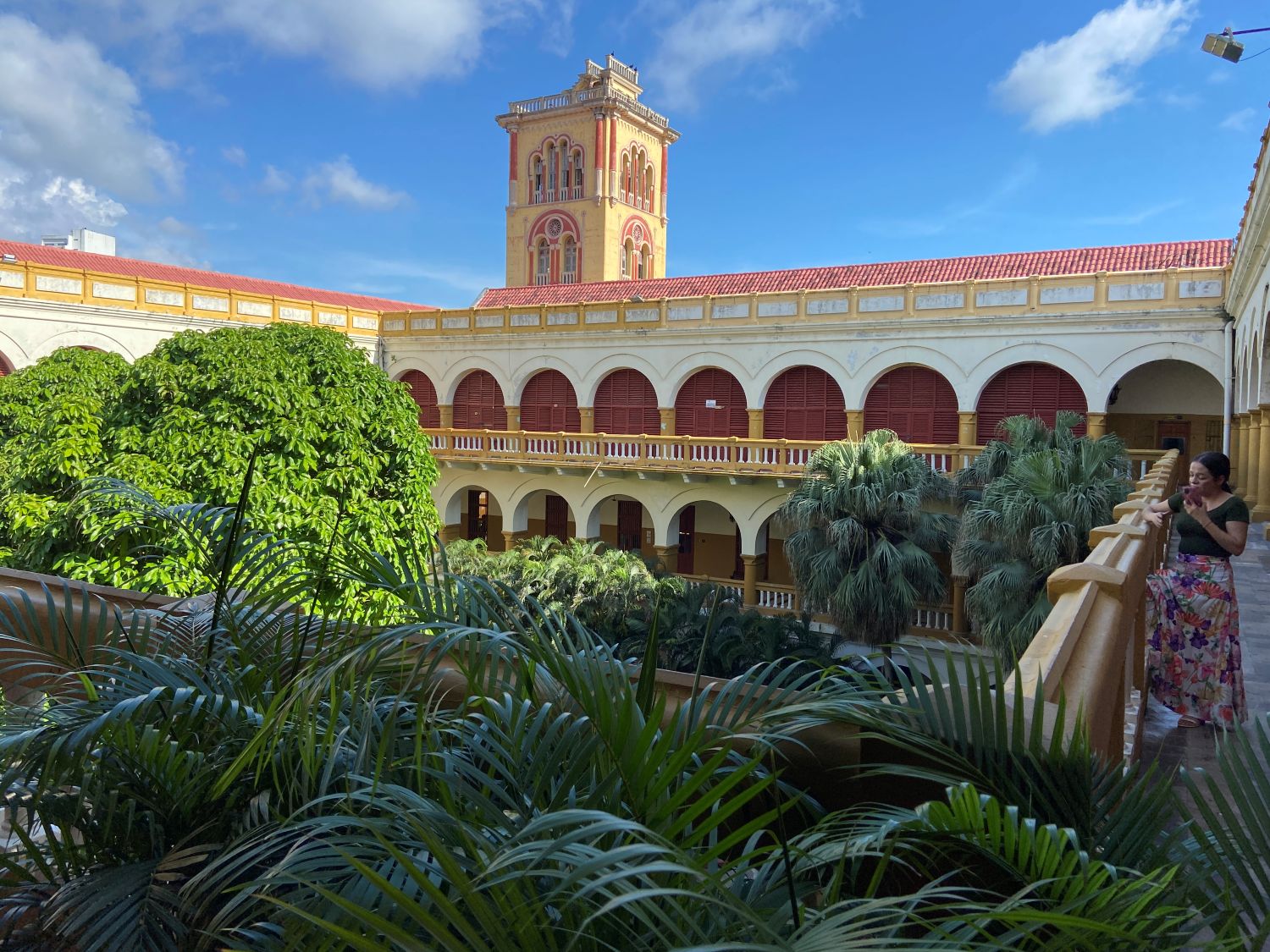
Provided photo
A Shared Achievement in the Spirit of the BICENTENNIAL
The entry of Universidad del Cauca and the renewed inclusion of Universidad de Cartagena in the Times Higher Education (THE) Impact Rankings on the Sustainable Development Goals (SDGs) is an affirmation of the historical role both institutions have played in social transformation, territorial development, and the consolidation of a human-centered, ethical, and sustainable public education.
This news gains even more relevance in the context of the journey toward the Bicentennial that both universities will celebrate in 2027. With almost two centuries of history, these sister institutions have been cornerstones in shaping national thought and educating generations committed to the country. Today, that legacy is projected through an academic vision that engages with the SDGs from a territorial, intercultural, and deeply equity-driven perspective.
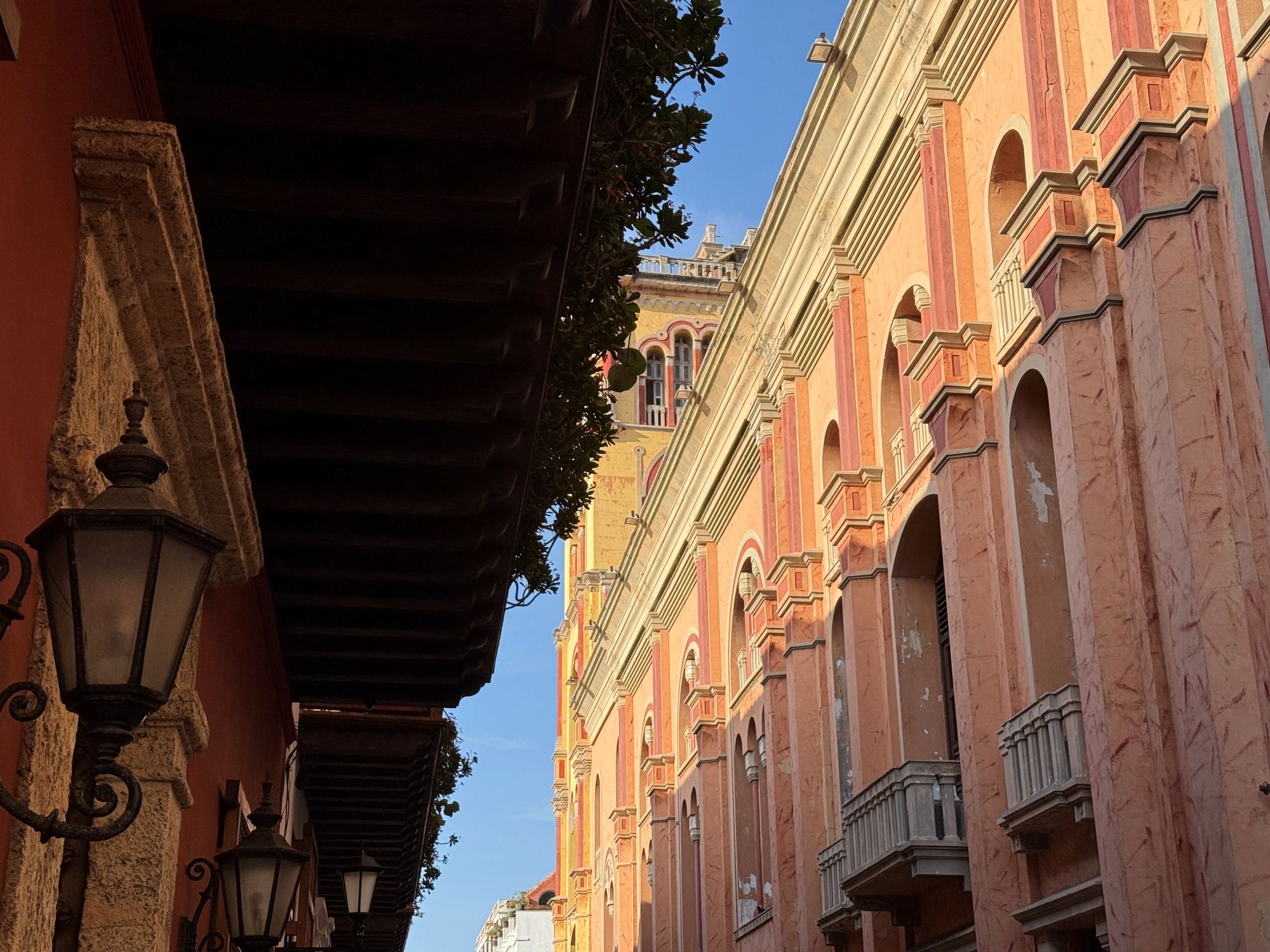
Provided photo
Under the leadership of their rectors, Deibar René Hurtado Herrera and Willian Malkún Castillejo, Universidad del Cauca and Universidad de Cartagena have made the Bicentennial agenda a strategic pillar of academic innovation, linking historical memory with the training of highly qualified talent. As part of this agenda, joint initiatives have been launched such as the forum at the Gabo–Unicauca Center in Bogotá, a prelude to a series of traveling conversations about the role of public universities in achieving the SDGs, as well as editorial and research calls backed by their institutional publishing imprints and coordinated participation in the Bogotá International Book Fair – FILBo.
For the rector of the alma mater in Cauca, Deibar René Hurtado Herrera, joining efforts around such a crucial national milestone involves consolidating a strategic alliance that goes beyond commemoration to become a platform for innovation, social justice, and territorial transformation. “The joint agenda between Universidad del Cauca and Universidad de Cartagena, our bicentennial universities, is more than a meeting of sister institutions: it is an ethical commitment to the country, to public education, and to historically marginalized territories. These institutions have been beacons of critical thinking and defenders of university autonomy. Today, within the framework of the Bicentennial, we unite our capabilities not only to commemorate, but to project a more open, relevant, and SDG-aligned public university. This alliance allows us to share good practices and promote joint agendas on open science, employability, and environmental justice, with the conviction that the southwest and Caribbean regions of the country have much to contribute to national transformation,” he stated.

Provided photo
For Harol Gómez Estrada, Vice-Rector for Research at Unicartagena,“The Bicentennial agenda is not merely a commemorative event, but a strategic platform where open science, educational innovation, and institutional intelligence converge to transform our regions with global impact.”The administrator explained that these initiatives incorporate tools such as data analytics, artificial intelligence, and semantic technologies to map research trends, identify curricular gaps, and define high-impact editorial lines. In this model, editorial projects move beyond traditional compilations to become open, interoperable digital repositories with increased international projection.
Gómez Estrada also noted that, in a second line of work, both universities are leading an intersectoral pact with entrepreneurs and regional governments from Cauca and Bolívar, aimed at incubating projects on green economy, environmental justice, and youth employability. Predictive algorithms help identify opportunities for technology transfer; adaptive learning platforms personalize educational pathways; and territorial digital twins simulate sustainable development scenarios. At the same time, the digitization of Universidad de Cartagena’s historical archives, with optical recognition and semantic metadata, strengthens applied research rooted in heritage.
With real-time control panels reporting directly to the rectors, this alliance is consolidating itself as a living laboratory of open science, cutting-edge education, and inter-institutional cooperation, capable of transforming Colombia’s Caribbean and Southwestern regions while amplifying global outreach. And because together we are stronger, from Popayán and Cartagena, from the Andes to the Caribbean, these sister universities celebrate this recognition as a shared promise: on the road to their first 200 years, they will continue building, through high-quality public education, a fairer, more sustainable, and transformative future for Colombia.
Written by: Communications Management Center


